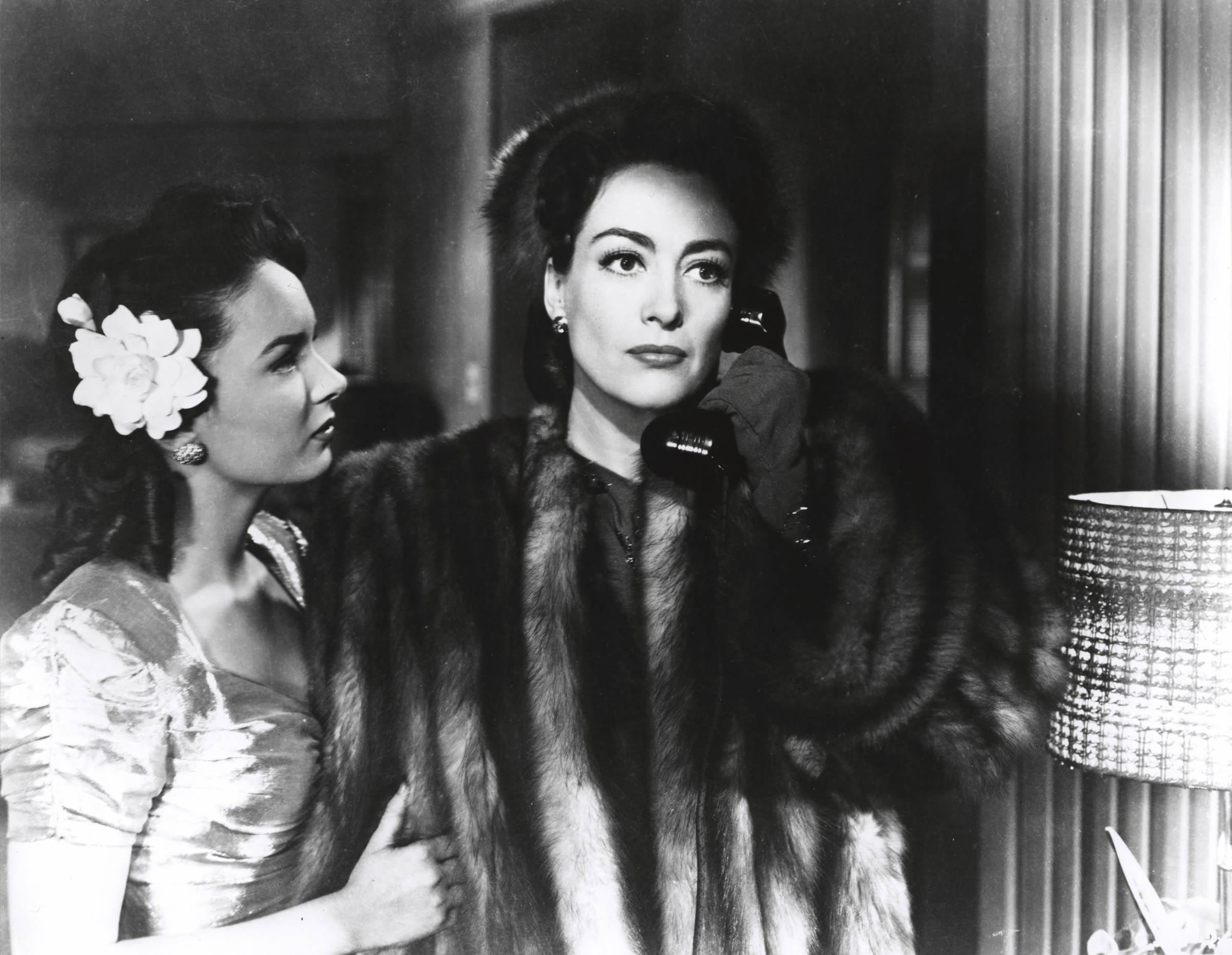Well-Oiled Machine
Mildred Pierce (1945) is the kind of competently directed Hollywood film from the 1940s that seems better each time you watch it. Like Michael Curtiz’s other outstanding drama from that decade, Casablanca (1943), everything seems to click — uniformly fine performances, a terrific script that never misses a beat, and a first-rate musical score (Max Steiner in both cases).
Joan Crawford won the title role only after it was turned down by Bette Davis and Rosalind Russell. Shirley Temple was considered for the part of the teenaged daughter, Veda Pierce. Fortunately, fate (or good sense) prevailed, and it’s now hard to imagine anyone else in any of the roles. Ranald MacDougall, Catherine Turney, and an uncredited William Faulkner adapted the screenplay from the novel by James M. Cain. The movie downplays much of the sexual frankness of the novel, which Curtiz handles obliquely. You may recognize Cain as the author behind The Postman Always Rings Twice (1946).
A key strength of the film version of Mildred Pierce is that it doesn’t fit easily into a single genre. It begins with a murder and failed attempt to frame an innocent man — classic elements of a film noir. The distinct lighting and emotionally charged music also point to that genre. In the flashbacks, however, we’re thrown into an entirely different film genre, sometimes referred to as “weepies” or “women’s pictures.” Here we’re sympathetically drawn into the story of a woman struggling to give her children a better life. The arc of the film is the collision of these two types of movies. Ultimately, one of the genres has to win out, and it’s the interplay between the two storylines that makes this film especially appealing.
It’s also remarkable how the various elements mix together so seamlessly. The comic lines (delivered by Jack Carson as Wally and Eve Arden as Ida) reinforce what we’ve already learned about the characters. For example, Ida sums up Mildred and Veda’s relationship with this biting comment, “Personally, Veda’s convinced me that alligators have the right idea. They eat their young.” Similarly, Wally acknowledges his own failings when he says, “Oh boy! I’m so smart it’s a disease!”
While you can make a case against the restrictiveness of the Hollywood studio system, movies such as Mildred Pierce represent the best argument for the advantages. The film’s high-buff polish and overall consistency are a direct result of a well-oiled studio machine.
Mildred Pierce
(1945; directed by Michael Curtiz)
The Criterion Collection (Blu-ray)
Warner Home Video (DVD)
Sunday, January 29 at 9:45 p.m. eastern on Turner Classic Movies
Reviews